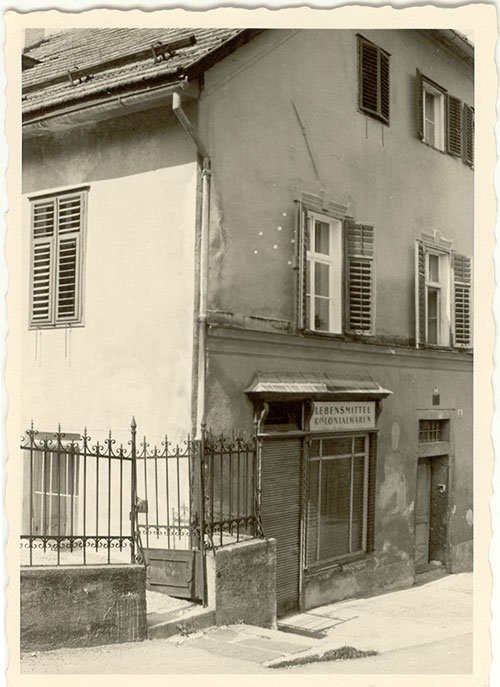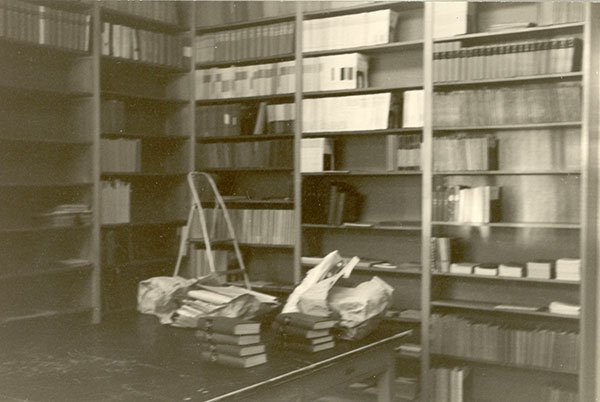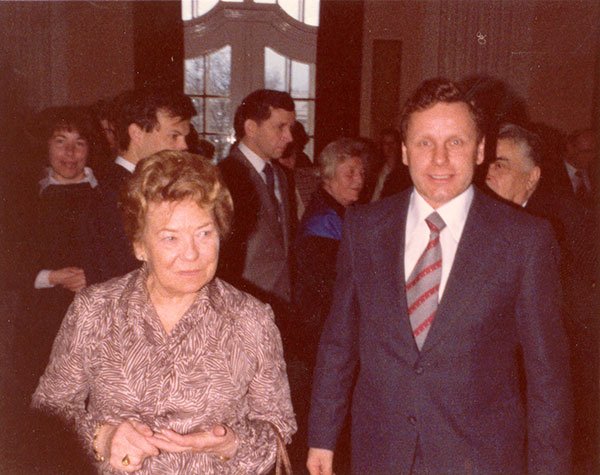Das Brenner-Archiv ist ein Forschungsinstitut der Universität Innsbruck. Es wird gefördert vom Land Tirol - Abt. Kultur, der Stadt Innsbruck und dem Land Südtirol - Abt. Kultur und bildet das regionale Tiroler und Südtiroler Literaturarchiv. Darüber hinaus ist das Brenner-Archiv jedoch auch seit seiner Gründung, seinem Auftrag gemäß, ein überregional und österreichweit ausgerichtetes Literaturarchiv. Der Name geht zurück auf die Kulturzeitschrift Der Brenner (1910-1954).
Das Archiv der Redaktion der Zeitschrift Der Brenner war der Grundbestand. Diesem Redaktionsarchiv gehört ein beträchtlicher Teil des Nachlasses von Georg Trakl als eigene Sammlung an. Entsprechend der Ausrichtung des Brenner, seiner überregionalen und interdisziplinären Orientierung, wurden im Lauf der Jahre Nachlässe aus dem Umkreis der österreichischen Moderne erworben (Paul Engelmann, Hans Kestranek, Karl Kraus, Leopold Liegler, Sidonie Nádherný von Borutin, Margarete Stonborough-Wittgenstein). Neben literarischen Beständen (u.a. Christine Busta, Otto Grünmandl, Fritz von Herzmanovsky-Orlando) sammelt das Brenner-Archiv auch solche aus Philosophie und Theologie (Ferdinand Ebner, Ernst von Glasersfeld - eigene Archiv-Abteilung -, Wolfgang Stegmüller, Ludwig Wittgenstein), Bildender Kunst (Anny Engelmann, Albin Egger-Lienz, Max von Esterle, Wilfried Kirschl, Erich Lechleitner, Markus Vallazza), Musik (Günther Andergassen, Othmar Costa, Josef Matthias Hauer, Robert Nessler, Peter Suitner, Haimo Wisser, Peter Zwetkoff).
In außerordentlicher Dichte sind Tiroler Autorinnen und Autoren des 19. und 20. Jahrhunderts dokumentiert (Rudolf Greinz - eigene Archiv-Abteilung -, Norbert C. Kaser, Franz Kranewitter, Karl Schönherr, Fanny Wibmer-Pedit), ferner einzelne aus Vorarlberg (Claus Pack, Max Riccabona).
Auch werden einzelne "Vorlässe" lebender Autorinnen und Autoren betreut (Karl Lubomirski, Felix Mitterer, Rosmarie Thüminger, Joseph Zoderer).
Berücksichtigt werden ferner Nachlässe von Sagen- und Märchensammlern (Karl Felix Wolff, Ignaz Vinzenz Zingerle), das Theater (Exl-Bühne, Tiroler Volksschauspiele) und der Literaturbetrieb (Angelika von Hörmann, Ingeborg Teuffenbach, die Veranstaltungsreihe Österreichische Jugendkulturwochen/Innsbrucker Wochenendgespräche, die Kulturzeitschrift das Fenster) sowie die Wissenschaft (Rudolf von Ficker, Erwin Schrödinger, Oswald Zingerle).
Einige der von uns aufbewahrten und gepflegten Nachlässe sind zweisprachig (deutsch und italienisch: z.B. Gerhard Kofler), manche, den sprachlichen Realitäten des historischen Tiroler Raums gemäß, dreisprachig (deutsch, italienisch und ladinisch: z.B. Karl Felix Wolff).
2020 verwahrt das Brenner-Archiv rund 285 Nachlässe, Teilnachlässe und Sammlungen (siehe Bestandsverzeichnis) persönlicher und institutioneller Provenienz. Die Bibliothek umfasst etwa 30.000 Bände und historische Zeitschriften (ein großer Teil davon in Nachlassbibliotheken). Die Bibliothek ist zur Gänze im Verbundkatalog der wissenschaftlichen Bibliotheken Österreichs oder im Katalog der Universitäts- und Landesbibliothek Tirol recherchierbar. Die Bibliothek des Brenner-Archivs ist eine Präsenzbibliothek, d.h. Bücher können nicht ausgeliehen werden. Führungen sind nach Vereinbarung mit dem Sekretariat jederzeit möglich.
Das Brenner-Archiv hat seit seinem Bestehen einen besonderen Schwerpunkt auf die Forschung gelegt, wovon zahlreiche Forschungsprojekte zeugen. Editionen mit kulturwissenschaftlichen Kommentaren, die literaturhistorische Dokumentation und Biographien sind die Spezialgebiete der Forscherinnen und Forscher am Brenner-Archiv, dazu kommen theoretische und methodologische Reflexion, etwa zu Problemen der regionalen Geschichtsschreibung, der kulturellen Überlieferung, der Kanonbildung und der Digitalisierung. Über die für das Institut relevanten externen Forschungen sowie die Forschungen im Institut berichtet seit 1982 jährlich das Institutsorgan, die Mitteilungen aus dem Brenner-Archiv. Selbständige Publikationen und wissenschaftliche Beiträge der Institutsmitglieder sind online abzufragen.
Im Mittelpunkt der archivarischen Tätigkeit steht das Bemühen, den umfangreichen Archivalienbestand benutzbar zu machen, ihn zu ergänzen und zu erweitern. In diesem Sinne ist heute nicht nur die Archivierung, sondern auch die Digitalisierung und die digitale Langzeitarchivierung eine Routine unserer Archivarinnen und Archivare. Das Brenner-Archiv sieht eine wichtige Aufgabe darin, auch die nicht-akademische Öffentlichkeit für das kulturelle Erbe zu interessieren (Walter Methlagls "3-Säulen-Modell": Sammeln, Forschen, Vermitteln. Das online Portal LiteraturTirol – betrieben vom Forschungsinstitut Brenner-Archiv – bietet das Literaturmagazin LiLit, die Literaturlandkarte Tirol und das open access Lexikon Literatur in Tirol an. In diesem Lexikon sind Artikel zu nahe 1000 Autorinnen und Autoren vom 19. Jahrhundert bis zur Gegenwart abrufbar.
Das 1997 gegründete Literaturhaus am Inn ist eine Abteilung des Forschungsinstituts Brenner-Archiv. Es betreut einerseits die öffentliche Seite des Brenner-Archivs, andererseits bietet es eine Bühne für die Gegenwartsliteratur und aktuelle Diskussionen in Kunst und Kultur.
Weitere Abteilungen wurden bereits erwähnt: das Ernst von Glasersfeld-Archiv und das Rudolf Greinz-Archiv.

Durch einen Vertrag zwischen der Republik Österreich und dem Herausgeber des Brenner, Ludwig von Ficker (1880-1967) wurde 1964 das Brenner-Archiv gegründet. Wie erwähnt, war das Archiv der Redaktion der Zeitschrift Der Brenner mit dem Kryptonachlass Georg Trakls der Grundbestand. Dieses Redaktionsarchiv umfasst auch Manuskripte von Brenner-Mitarbeiterinnen und Mitarbeiters sowie publizistische Materialien aus der Redaktion des Brenner; sein Hauptteil ist die umfangreiche Korrespondenz Ludwig von Fickers mit Persönlichkeiten aus Literatur, Philosophie und Kunst (darunter Paul Celan, Martin Heidegger, Karl Kraus, Else Lasker-Schüler, Christine Lavant, Rainer Maria Rilke, u.v.a.). Die Gründungsgeschichte des Archivs ist in der Online-Publikation Brenner-Gespräche dokumentiert.

1979 wurde das Brenner-Archiv durch einen Vertrag zwischen Bund, Land Tirol und Leopold-Franzens-Universität Innsbruck als Forschungsinstitut der Universität etabliert, was besonders den Bemühungen des Leiters, Tit. Ao. Univ.-Prof. Dr. Walter Methlagl, zu verdanken war, der das Institut bis zu seiner Pensionierung 2001 führte. Ein Kuratorium berät und unterstützt die Leitung in allen das Forschungsinstitut betreffenden Angelegenheiten.
Das Forschungsinstitut Brenner-Archiv war eines der ersten Literaturarchive im deutschen Sprachraum und in der vorgestellten Struktur Vorbild für entsprechende Gründungen in anderen österreichischen Bundesländern.

Von 2001 bis zu seiner Pensionierung 2013 hatte Ao. Univ.-Prof. Mag. Dr. Johann Holzner die Institutsleitung inne.
Bis 30. September 2014 wurde das Institut durch Univ.-Prof. Dr. Sebastian Donat, MA interimistisch geleitet, gemeinsam mit einem Advisory Board: Mag. Dr. Christine Riccabona, Mag. Dr. Ursula A. Schneider, Dr. Annette Steinsiek M.A., Dr. Anton Unterkircher, Dr. Erika Wimmer.
Am 1. Oktober 2014 hat Univ.-Prof. Dr. Ulrike Tanzer die Leitung des Forschungsinstituts Brenner-Archiv übernommen.
Das Literaturhaus am Inn wurde 1997 gegründet. Aufbau, Leitung und Geschäftsführung bis 2000: Mag. Dr. Ursula Schneider, Dr. Erika Wimmer; 1998 bis 2004: Dr. Erika Wimmer; Leitung seit 2003: Dr. Anna Rottensteiner / Geschäftsführung seit 2004: Mag. Kristin Jenny. 2022 übernimmt Mag. Dr. Maria Piok die Leitung des Literaturhauses am Inn.




